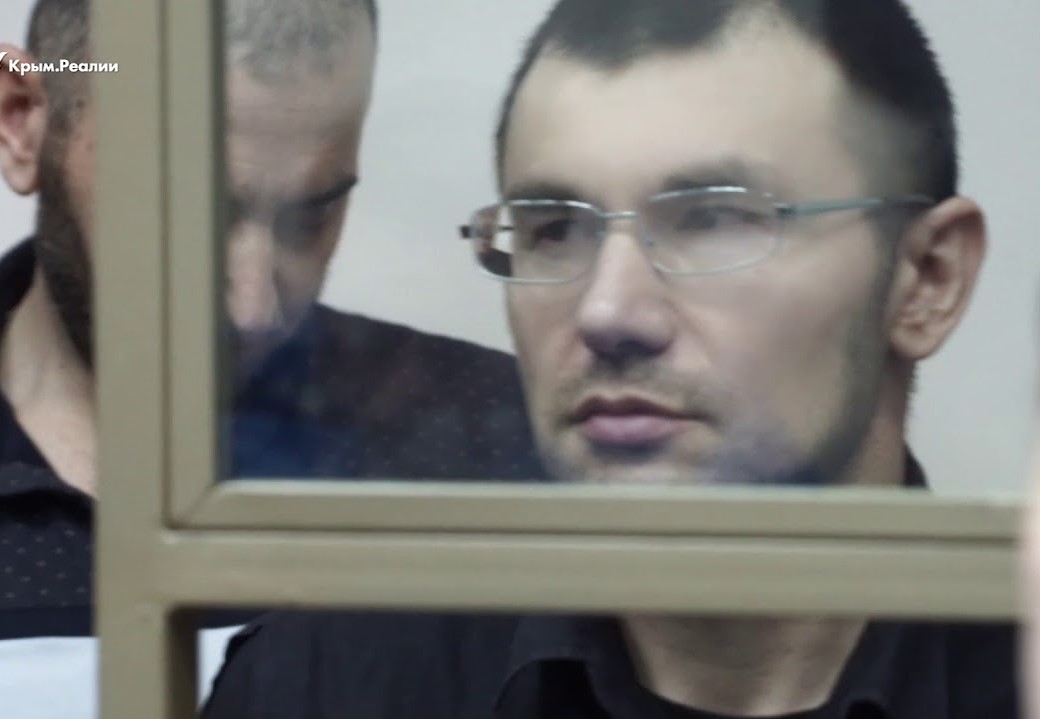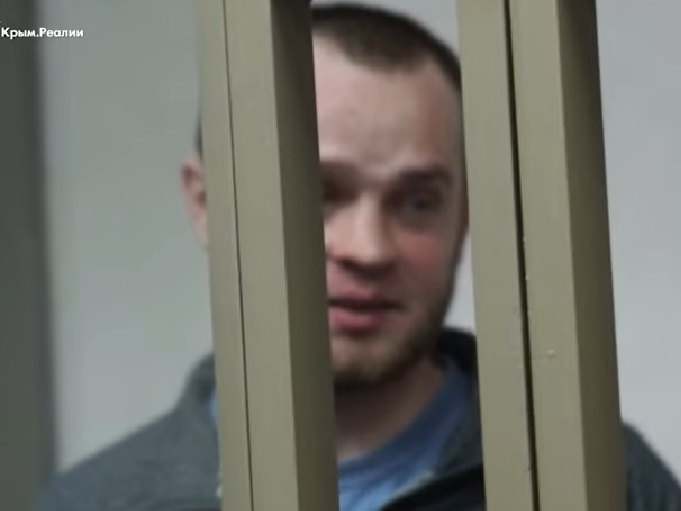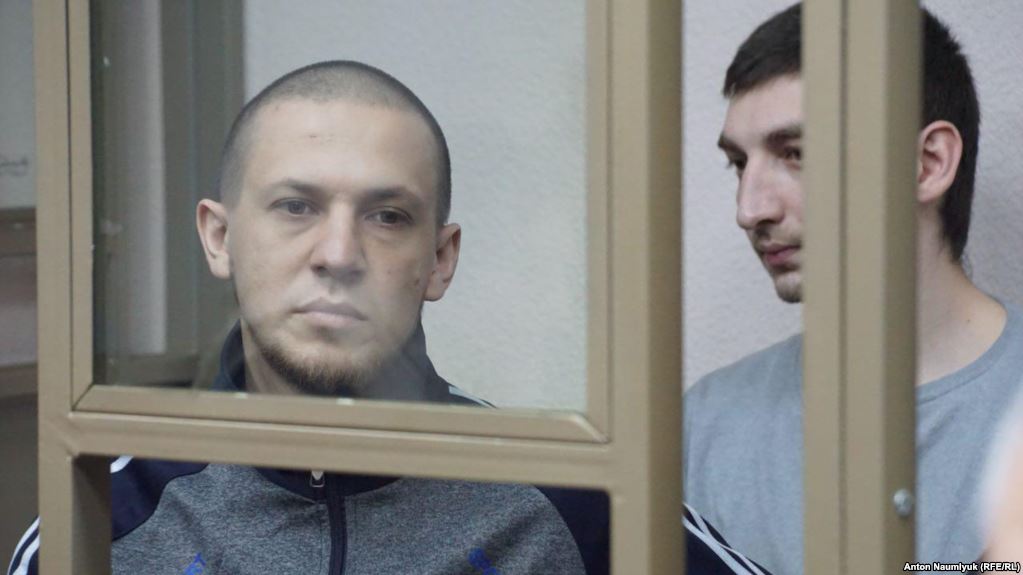• Topics / Human Rights Abuses in Russian-occupied Crimea
Profoundly cynical trial begins of Crimean Tatar human rights activist and five other Crimean Muslims

An illegal trial is underway in the Russian city of Rostov of six Crimean Muslims facing sentences of 15 years or more on unproven charges of involvement in a peaceful organization which is legal in Ukraine. The first open hearing was attended, among others, by Ukraine’s General Consul in Rostov and by Amnesty International which has declared one of the defendants, human rights activist Emir-Usein Kuku, a prisoner of conscience. The same status should be awarded all six men who have been imprisoned for two years solely for their faith and, in some cases at least, either because of their civic position or out of revenge for their refusal to collaborate with Russia’s FSB.
The charges pertain solely to alleged and unproven involvement in Hizb ut-Tahrir, a pan-Islamist organization which is not known to have committed an act of terrorism or violence anywhere in the world. Russia declared it ‘terrorist’ in 2003, without providing any reasonable grounds, and now regularly sentences men to huge terms of imprisonment merely for alleged involvement in the organization, with ‘proof’ often provided by highly suspect ‘secret witnesses’. The renowned Memorial Human Rights Centre has from the outset declared that all those convicted on such dubious charges are political prisoners, and stresses that in the case of Crimean Muslims, Russia is also in violation of international law since it has no right to apply Russian legislation on occupied territory.
47-year-old Muslim Aliev has been designated ‘organizer’ of a Hizb ut-Tahrir group and faces a sentence of from 15 to 20 years under Article 205.5 § 1 of Russia’s criminal code (organizing a group declared terrorist), while Refat Alimov; Inver Bekirov; Arsen Dzhepparov; Emir-Usein Kuku and Vadim Siruk are accused of ‘involvement’ (Article 205.5 § 2) with this carrying sentences from 10 to 20 years. In January 2017, the FSB suddenly added another charge – of ‘planning violent seizure of power’ (Article 278 of Russia’s criminal code) with this adding a further eight years to the sentences.
During the hearing on February 14, some of the men stated that they didn’t even understand what it is they’re charged with, while all rejected any wrong-doing.
Muslim Aliev said that did not fully understand what it was they claim he did. He called the charges an attempt to discredit him in the eyes of the court, his family and the Crimean community, to present him as some sociopath who incites people to unlawful and extremist behaviour.
Inver Bekirov referred to the Russian constitutional guarantee of freedom of expression, and noted that this does not appear to apply to Muslims who are immediately branded ‘terrorists’ or ‘extremists’.
 Vadim Siruk at an earlier hearing
Vadim Siruk at an earlier hearing
Vadim Siruk spoke of repression on ethnic grounds in Crimea. He is the only ethnic Ukrainian among the six men, with all the others Crimean Tatar, and it has been suspected from the outset that he was arrested both so that he could be pointed at as supposed proof that Russia is not targeting Crimean Tatars, and as a warning to others not to convert to Islam.
Both Refat Alimov and Arsen Dzhepparov asked how they were supposed to have been part of a terrorist organization headed by Aliev, if they hadn’t even known him. Dzhepparov reiterated his charges, corroborated by members of his family, that he had been arrested after he refused to collaborate with the FSB.

Arsen Dzhepparov (left) and Refat Alimov,
Kuku called the charges absurd. “How could you establish Khalifate in Crimea with the help of a secret call? What total Islamization of the population are they talking about anyway? … Judging by the indictment, I’m supposed to have tried to change the political system of the state structure of the Russian Federation in order to include it in a world Khalifate that doesn’t exist”. Kuku went on to note the multiple discrepancies in the indictment. This claims, for example, that he had on several occasions taken part in conspiratorial meetings, though only one is specified, and this was in a building which many had access to. It is also asserted that he was holding extremist literature, yet not one book that is banned in Russia was found during the search.
Kuku is represented by Sergei Loktev and Alexander Popkov from the Agora Human Rights Group which reports that the investigators are claiming that Kuku – and the other men – had “been given the duty of propagandizing the ideas of the given organization [Hizb ut-Tahrir] among the local population in order to promote the views, ideas, and program of a terrorist organization… and to encourage the latter to take part in the activities of the given terrorist organization”.
With no proof ever provided to justify calling Hizb ut-Tahrir ‘terrorist’, Russia is thus claiming that promoting the organization’s position is enough to warrant sentences of up to 20 years.
It should be stressed that no evidence of genuine involvement in Hizb ut-Tahrir is needed, since ‘secret witnesses’ are allowed, and the judges know not to ask any questions, however confused and unconvincing the testimony is.
In this case, it appears that the only ‘evidence’ is a conversation which was illicitly taped by the person who will probably appear as a ‘secret witness’. The person appears to have initiated the gathering, and to have also steered the conversation, asking provocation-linked questions.
It is known that FSB officers use such so-called ‘Hizb ut-Tahrir cases’ as a means of promotion. In occupied Crimea, they are also very evidently being deployed against human rights or civic activists and, in some cases, by traitors who earlier worked for Ukraine’s SBU against those who annoyed them in the past, or who have refused to collaborate now.
Kuku’s case was especially extreme since the human rights activist had faced an attempted abduction, which ‘turned into’ an FSB search only after Kuku’s cries for help attracted a crowd, and other forms of harassment for well over a year before his arrest on Hizb ut-Tahrir charges on 11 February 2016 (details here).
As well as working at two or more jobs for many years to pay for expensive medical treatment for one of his daughters, Aliev was also the informal leader of a local Muslim community. The latter had come into conflict with the Muftiat on a number of occasions, and his family is convinced that this is the reason that he was arrested on February 11, 2016.
The trial continues at the Rostov Military Court on February 15.





